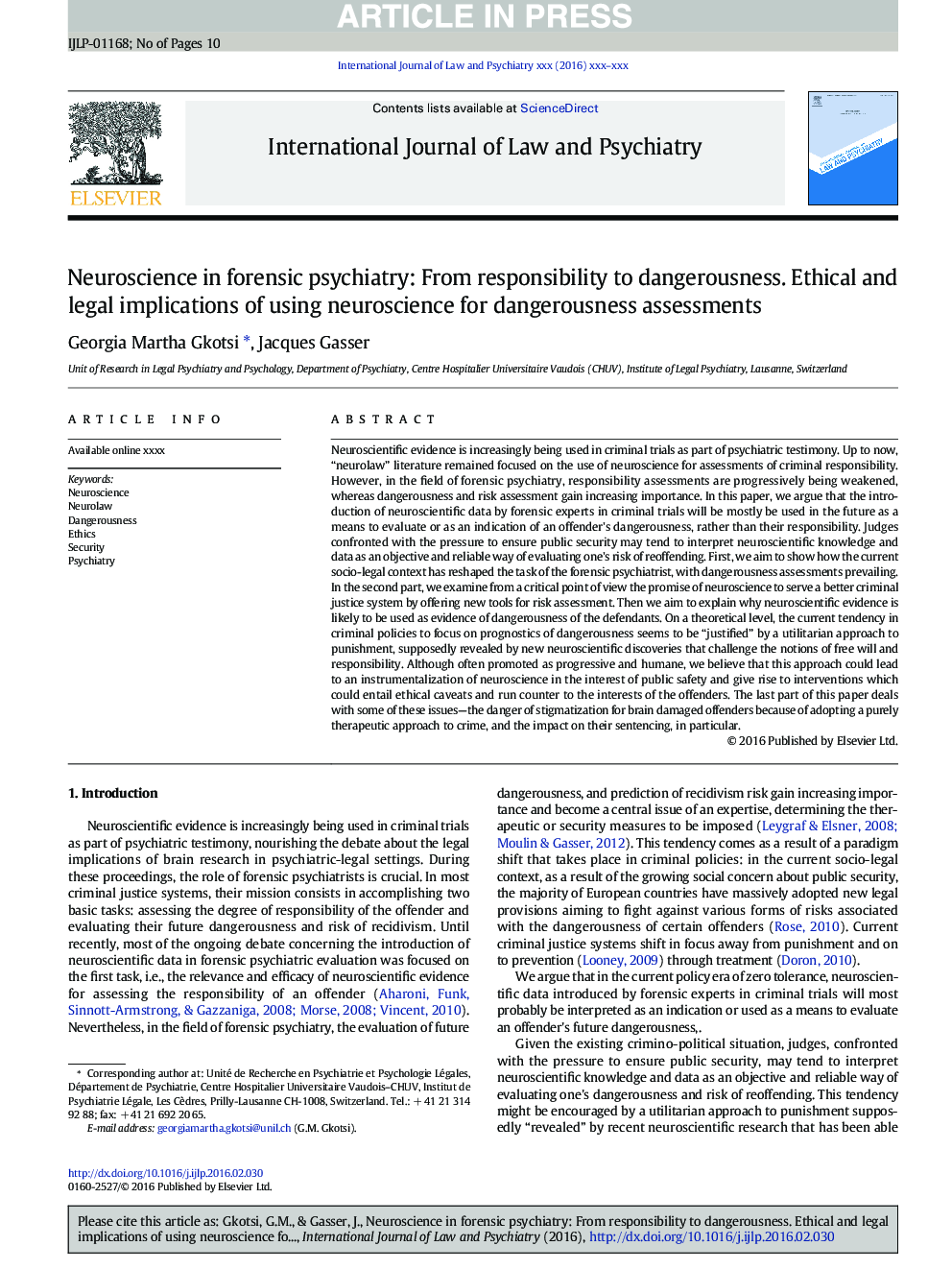| کد مقاله | کد نشریه | سال انتشار | مقاله انگلیسی | نسخه تمام متن |
|---|---|---|---|---|
| 6554606 | 1422276 | 2016 | 10 صفحه PDF | دانلود رایگان |
عنوان انگلیسی مقاله ISI
Neuroscience in forensic psychiatry: From responsibility to dangerousness. Ethical and legal implications of using neuroscience for dangerousness assessments
ترجمه فارسی عنوان
علوم اعصاب در روانپزشکی قانونی: از مسئولیت به خطرناکی. پیامدهای اخلاقی و قانونی استفاده از علوم اعصاب برای ارزیابی خطرناپذیر
دانلود مقاله + سفارش ترجمه
دانلود مقاله ISI انگلیسی
رایگان برای ایرانیان
کلمات کلیدی
موضوعات مرتبط
علوم پزشکی و سلامت
پزشکی و دندانپزشکی
پزشکی قانونی
چکیده انگلیسی
Neuroscientific evidence is increasingly being used in criminal trials as part of psychiatric testimony. Up to now, “neurolaw” literature remained focused on the use of neuroscience for assessments of criminal responsibility. However, in the field of forensic psychiatry, responsibility assessments are progressively being weakened, whereas dangerousness and risk assessment gain increasing importance. In this paper, we argue that the introduction of neuroscientific data by forensic experts in criminal trials will be mostly be used in the future as a means to evaluate or as an indication of an offender's dangerousness, rather than their responsibility. Judges confronted with the pressure to ensure public security may tend to interpret neuroscientific knowledge and data as an objective and reliable way of evaluating one's risk of reoffending. First, we aim to show how the current socio-legal context has reshaped the task of the forensic psychiatrist, with dangerousness assessments prevailing. In the second part, we examine from a critical point of view the promise of neuroscience to serve a better criminal justice system by offering new tools for risk assessment. Then we aim to explain why neuroscientific evidence is likely to be used as evidence of dangerousness of the defendants. On a theoretical level, the current tendency in criminal policies to focus on prognostics of dangerousness seems to be “justified” by a utilitarian approach to punishment, supposedly revealed by new neuroscientific discoveries that challenge the notions of free will and responsibility. Although often promoted as progressive and humane, we believe that this approach could lead to an instrumentalization of neuroscience in the interest of public safety and give rise to interventions which could entail ethical caveats and run counter to the interests of the offenders. The last part of this paper deals with some of these issues-the danger of stigmatization for brain damaged offenders because of adopting a purely therapeutic approach to crime, and the impact on their sentencing, in particular.
ناشر
Database: Elsevier - ScienceDirect (ساینس دایرکت)
Journal: International Journal of Law and Psychiatry - Volume 46, MayâJune 2016, Pages 58-67
Journal: International Journal of Law and Psychiatry - Volume 46, MayâJune 2016, Pages 58-67
نویسندگان
Georgia Martha Gkotsi, Jacques Gasser,
